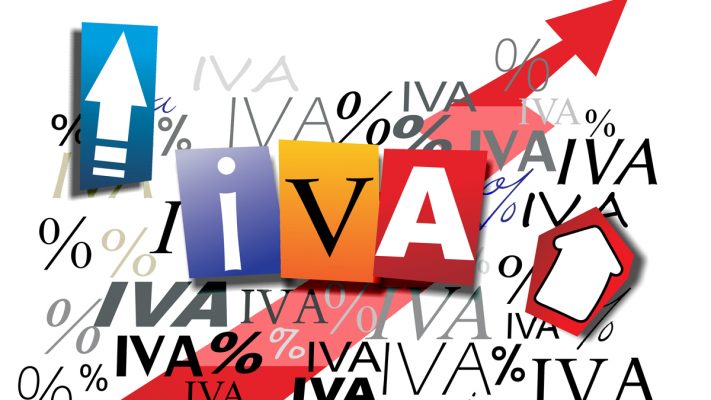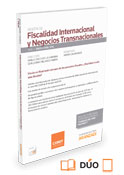
While you start reading this article, today, I will be on a beautiful Greek island drinking Ouzo, with some friends. If I am telling you this trifling fact, the aim is not to make you jealous rather more because the day I bought my ticket and, just like many, I was planning carelessly my summer vacation, the European Commission (“EC”) published a series of very much awaited reports about VAT in the Digital Age, which explain somehow the “trail” that it may be following. As my main practice is in VAT, I couldn´t not share this hot topic with you and comment it.
But first, let us just go back in time a little so we can refresh our memory where these reports come from. Without any doubt, the growth of the platform economy, in the last few years and the new associated models are becoming an important challenge to tax authorities. It is clear that the transformation of our economic system is faster than the tax authorities’ability to follow and adapt. Not to forget that the digital world represents enormous opportunities to tax administrations. It is with this in mind that, on January 20, 2022, the EC launched a public consultation on the current VAT rules, and whether they are adapted to the digital era we face nowadays, and how digital technology can be used to help Member States fight VAT fraud and benefit businesses. It remained open until May 5, 2022, where 193 responses were received from 22 EU Member States and 5 non-EU countries.
The VAT in the Digital Age documents were prepared in this framework by grouping of consulting firms and research institutions for the Directorate General for Taxation and Customs Union of the EC. The final result consists of 4 reports and one executive summary, where each report covers a main focal point:
- Digital reporting requirements.
- The VAT treatment of the Platform Economy.
- Single place of VAT registration and import One-Stop Shop.
- Consultation activities.
- Digital Reporting Requirements
This part of the Study covers Digital Reporting requirements (“DRR”) that is an obligation for VAT taxable persons to periodically or continuously submit data in a digital way on all, or most of, their transactions, including by means of mandatory e-invoicing to the tax authority.
It assesses the current situation about the existing legal framework for DRRs, that can be exposed in two major points:
A. The current and forthcoming national reporting mechanisms that are already in place:
Currently, 12 Member States have introduced a DRR, 6 of them as VAT listing and in 3 others as SAF-T. Only 3 countries have introduced a Continuous Transaction Controls (“CTC”) system, Spain and Hungary as real-time, and Italy with a mandatory e-invoicing requirement. France announced an e-invoicing system for B2B transactions and e-reporting of all supplies not falling in the e-invoicing in different stages over 3 years, starting July 2024. Greece, through the myDATA reporting, is introducing a real-time system along on a periodic basis and where the last adjustments to discrepancies must be submitted no later than December 31, 2022.
B. The costs and benefits generated by the existing DRRs, for Member States authorities, domestic operators and multinational companies:
Substantial one-off costs were incurred by public authorities for up and/or adapting their IT systems for the introduction of DRRs. Investment costs reported by Members States implementing PTC systems could fall in the EUR 1.5 3 million range. Maintenance costs of the IT systems have been assessed as the most significant costs incurred. The majority of Member States maintained that there is a positive effect of DRRs on VAT compliance, and consequently on increased VAT revenues. With the introduction of a DRR, tax control activities have improved, in particular by increasing the accuracy and effectiveness of risk analysis. Furthermore, economic operators and VAT practitioners report that frequent changes and updates in national requirements represent an important source of costs for businesses for the implementation and for the maintenance. Also, penalties and fines represent a big amount of costs incurred by taxable persons. Although, DRR is supposed to be very efficient, it was shown that the tax authorities are not more efficient in the process of VAT reimbursements. In some cases it could take over 93 days to issue a refund. Finally, the lack of harmonisation of DRRs across the EU generates additional administrative costs for multinational companies operating in multiple Member States.
This report also presents the results of the analysis and the impacts and considerations. These are the 4 policy options that have been retained and studied further:
- Status quo, no action is taken at EU level.
- Recommendation and removal of the derogation required for mandatory e-invoicing.
- Keeping the data with the taxpayers to store it that can be accessed by the tax authority upon request.
- Introduction of an EU DRR:
- Partial harmonisation where DRR is established for intra-EU transactions.
- Full harmonization where DRR is established for intra-EU and domestic transactions alike.
The analysis of impacts of possible policy options shows that the best policy choice results from the introduction of full harmonization of an EU DRR. As for the type of requirement, the comparison suggests that an e-invoicing solution ranks first across the various scenarios.
2. The VAT treatment of the Platform Economy
This part of the Study focuses on the VAT treatment of the platform economy. It aims to provide an estimate of the size of the platform economy in the EU, to analyse the VAT aspects related to it, and to conduct the analysis of costs, benefits, opportunities, and risks in respect of possible future changes, including the identification of policy options.
In 2019, over 1,500 digital platforms, having presence in the EU 27 Member States, reached EUR 66.9 billion of revenue. For the outcome of this paper, many factors were taken into account, such as the type of markets, the type of supplies, type of revenues, etc.
The legal framework investigation shows that the development of the platform economy raises new VAT-related legal challenges to national policies. The main legal issues regulated in the VAT Directive and transposed into national legislation are connected to: the taxable person status of the provider and the user, the term of economic activities, the deduction of input VAT and its adjustment, the special schemes for SMEs, the consideration, the nature of the services and the resulting place of supply. Also, other measures introduced by the EU to regulate the platform economy were investigated, such as the VAT e-commerce package, Digtial Services Act, Digital Market Act, etc.
The following options were retained for a more profound analysis:
- Dynamic baseline scenario (status quo);
- Clarification of VAT rules for the platform economy:
- Clarification of the nature of the services provided by the platform and their place of supply.
- Introduction of a rebuttable presumption on the status of platform providers.
- Streamlining of recordkeeping obligations.
- Deemed supplier for the supply of certain accommodation and transport services.
- Deemed supplier for the supply of accommodation and transport services.
- Deemed supplier for the supply of services for monetary consideration.
The clarifications envisaged under Option B have clear positive impacts on platform operators, by reducing administrative burdens, legal uncertainties, and by improving the smooth functioning of the internal market. However, it is concluded that the introduction of the deemed supplier regime would have positive effects on VAT revenue, with the application of VAT of a number of transactions which are currently exempt or out-of-scope. Also, indirect compliance benefits are very likely under the deemed supplier regime. Finally, the deemed supplier rule would rebalance the competition conditions between traditional and platform-based distribution channels, by eliminating the tax-induced advantage of occasional and very small suppliers operating via platforms.
3. Single place of VAT registration and import One-Stop Shop (“OSS”)
This part of the Study focused on progress towards a Single Place of VAT registration in the EU for the minimization of situations where businesses are obliged to VAT register in more than one Member State, and improvements to the Import One-Stop Shop (“IOSS”) regime. It assesses situations still requiring VAT registration for non-established taxable persons and presents the results of the analysis of possible interventions and options.
The report identified 6 main types of transactions, where VAT registration by non-established businesses in the country, in which the supply takes place is still required despite the introduction of the OSS and IOSS regime:
- B2B domestic supplies of goods where the reverse charge does not apply
- B2B ICA/ICS of goods in/from a Member State where the business is not established
- B2B exports of goods from a Member State where the business is not established
- B2B domestic supplies of services where the reverse charge does not apply
- B2C domestic supply of goods
- B2C distance sales of imported goods by the supplier from a third country/territory
The following options were retained for a more profound analysis, but were presented in 2 groups:
Options related to the OSS
- Continuation of the status quo as of 1 July 2021.
- Extension of the OSS to domestic B2C supplies of goods by non-established suppliers.
- Extension of the OSS to remaining B2C supplies of goods and B2B supplies by non -established persons.
- Extension of the OSS as in option 2, plus the introduction of a mandatory reverse charge for B2B supplies by non-established persons.
Options for distance sales of imported goods / the IOSS
- Continuation of the status quo as of 1 July 2021.
- Removal of the EUR 150 threshold for use of the IOSS and / or extension to excise goods.
- Removal of the optional character of the IOSS scheme.
The report summarizes and compares the impacts of the different options, concluding that, regarding the OSS, option 3 is likely to generate more substantial benefits, and, regarding the IOSS, options 2 and 3 are expected to generate at least some additional benefits.
4. Consultation Activities
In total, some 272 stakeholders participated to consultation activities, including 25 during the familiarization interviews and 247 during the targeted consultations. Participants consisted of general businesses representing the most important categories, markets and industries, VAT practitioners and tax authorities.
Finally, in my view, these reports show that the tax system does not adapt rapidly enough to digital economy, where platforms daily increase their activities and financial approaches. So, tax administrations take shortcuts by interpreting rules and regulations so that they increase their own VAT revenue. I don’t agree with this approach, as it is contradictory to the essence of the interpretation of laws. I am hoping that with these reports, our EU tax leaders can modernize the VAT system in place to a more fair equation.
Till then, I will continue sipping my Ouzo… Cheers! «γεια μας«!
La opinión expresada en este artículo es exclusivamente del autor y no refleja ni puede ser relacionada con su entorno profesional.




